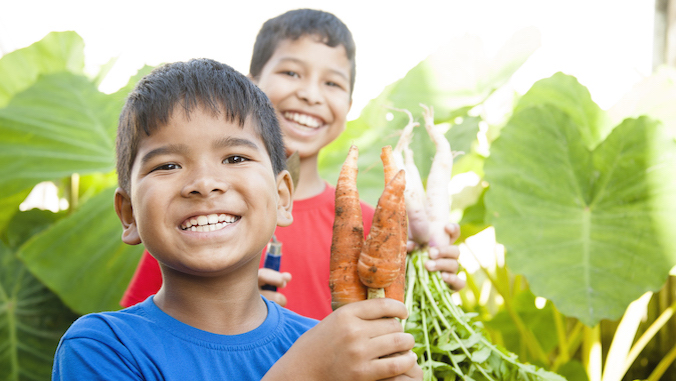
One in three hospitalized youth in Hawaiʻi had obesity, underscoring the need for greater attention to obesity in the inpatient setting and targeted interventions to reduce obesity among younger hospitalized patients. That’s according to a new study by University of Hawaiʻi at Mānoa and Hawaiʻi Department of Health (DOH) researchers. The study focused on children, adolescents and young adults ages 5-29 who received inpatient care in a hospital from 2015 to 2016.
In partnership with DOH’s Primary Prevention Branch, researchers from the Healthy Hawaiʻi Initiative Evaluation Team at the Office of Public Health Studies also found that there were disparities by race and ethnicity. Pacific Islanders, Native Hawaiians and Filipinos were more likely to have obesity.
“Better understanding of this issue is important because we know childhood obesity increases risks for illness and premature death over the life span,” said L. Brooke Keliikoa, lead author with the Office of Public Health Studies. “We found a higher prevalence of obesity among young Native Hawaiian and Pacific Islander populations, who often face inequities in social determinants of health that result in higher rates of chronic diseases and hospitalization at younger ages.”
While previous studies have shown obesity rates and hospitalizations with an obesity diagnosis have increased throughout the last 20 years, little has been known about the understudied younger populations.
Equity-focused obesity prevention efforts needed
“We hope that with this new information in hand, we can continue to build the case for equity-focused obesity prevention efforts that serve the needs of our communities,” shared DOH co-author and project co-lead Tammy Chase-Brunelle.
Findings from this study are highly relevant at the moment. According to the Centers for Disease Control and Prevention, hospitalizations associated with COVID-19 have been on the rise among children and adolescents. Obesity and associated chronic conditions greatly increase the risks of hospitalization and death, even for youth. Further, an emerging body of research shows significant weight gain during the COVID-19 pandemic among children and adolescents, putting them at risk not only for poor outcomes with COVID-19, but also other health conditions of concern.
Keliikoa and Chase-Brunelle’s co-authors include So Yung Choi, Toby Beckelman, Stephanie L. Cacal, Lance K. Ching, Tetine L. Sentell and Catherine M. Pirkle.
This effort is an example of UH Mānoa’s goal of Excellence in Research: Advancing the Research and Creative Work Enterprise (PDF), one of four goals identified in the 2015–25 Strategic Plan (PDF), updated in December 2020.

